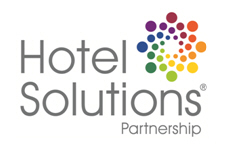|
| 
| The Discount Voucher Channel - Insight and Tips for Hoteliers By Milos Neumann The Discount Voucher Channel - Insight and Tips for Hoteliers By Milos Neumann |  Into
this world has come the new channel of discount vouchers. Groupon is a
deal-of-the-day website that features discounted gift certificates redeemable
at local or national companies. Groupon was launched in November 2008,
and Chicago was its first market. The company offers one “Groupon” per
day in each of the markets it serves. The Groupon works as an assurance
contract - if a certain number of people sign up for the offer, then the
deal becomes available to all; if the predetermined minimum is not met,
no one gets the deal that day. This reduces risk for retailers, who can
treat the coupons as quantity discounts, as well as sales promotion tools.
Groupon makes money by keeping approximately half the money the customer
pays for the coupon. Into
this world has come the new channel of discount vouchers. Groupon is a
deal-of-the-day website that features discounted gift certificates redeemable
at local or national companies. Groupon was launched in November 2008,
and Chicago was its first market. The company offers one “Groupon” per
day in each of the markets it serves. The Groupon works as an assurance
contract - if a certain number of people sign up for the offer, then the
deal becomes available to all; if the predetermined minimum is not met,
no one gets the deal that day. This reduces risk for retailers, who can
treat the coupons as quantity discounts, as well as sales promotion tools.
Groupon makes money by keeping approximately half the money the customer
pays for the coupon.
Here in the Czech Republic the new e-voucher offers were launched in 2010. The Czech portals are almost identical designs to Groupon. The service was well timed in the Czech market because it was launched at a time when there was a recession and hotel room occupancy needed a boost. Initially this channel generated an estimated 35% of the total number of room nights. In 2011, the total turnover of all the goods offered on these portals amounted to EUR 78 million selling 5.5 million vouchers. Of the voucher sale, EUR 8.5 million went to catering services and EUR 35 million to accommodation. But now in mid-2012, the channel contributes less than 5% of room occupancy. Originally, there were about 200 active portals but their number has been steadily declining. The strong get stronger, for instance www.Slevomat.cz the leader in the Czech market, expanded to the Baltic States, Slovakia, Hungary, Estonia and Lithuania this year. But in 2012, 50 discount portals in the Czech Republic have disappeared. Here in the Czech Republic, the issuers of these online discount vouchers partner with online banking partners and the hotel receives payment for the stay only after check out. And the channel commission is deducted by the bank and the portal before payment. The discount e-portal targets a customer that would not normally buy. It works either by tempting non-hotel users to stay in hotels, tempting buyers of lower quality hotels to upgrade, or enticing buyers of hotel experiences in one location to sample a hotel experience in another town or region. The discount e-portal does this by putting a highly discounted price in front of the potential guest – sometimes a 45% discount on the rack rates is available. But the voucher comes at a cost and the hotel needs to be very careful to ensure that the net contribution – revenue minus direct costs – is both positive and value adding. The question for hotel marketing executives and hotel operational executives is how to manage demand in this swiftly changing market. Initially many Czech hoteliers believed that their discount voucher deals would help them build a loyal customer base which would then deal directly with the hotel, without the Groupon channel in the middle. However in many cases, a Groupon deal merely attracts one-time bargain hunters who don’t return until they encounter another e-voucher deal that suits them. This in turn has affected the loyalty of many Groupon merchants themselves. Here in the Czech Republic I don’t expect as many hoteliers will run daily deals in the future. There is no question that the Internet has massively expanded our ability to promote and sell all aspects of hotel products and services. But there remains a core customer for your hotel and you need to be very careful not to crowd out these high yielding business or leisure customers with low yield ‘one-off’ customers who have bought discount vouchers. If a hotel is going to be empty because the dates/days are in some way unattractive, then maybe there is not a problem; but discount vouchers can materially depress profitability if managed wrongly. Hotel management must consider whether reputational management is enhanced or suffers when a hotel is used by buyers of a discount voucher representing 45% off rack rate. A high room occupancy rate is not always an indicator of high hotel profitability or of high customer satisfaction. We need to make decisions on the benefits the hotel gets from discount portal services, not in isolation, but in the general context of total revenue and profit management. About
Hotel Solutions Partnership
Contact:
|
Placement Dates: 10/23/12 – 12/23/12
|
|
